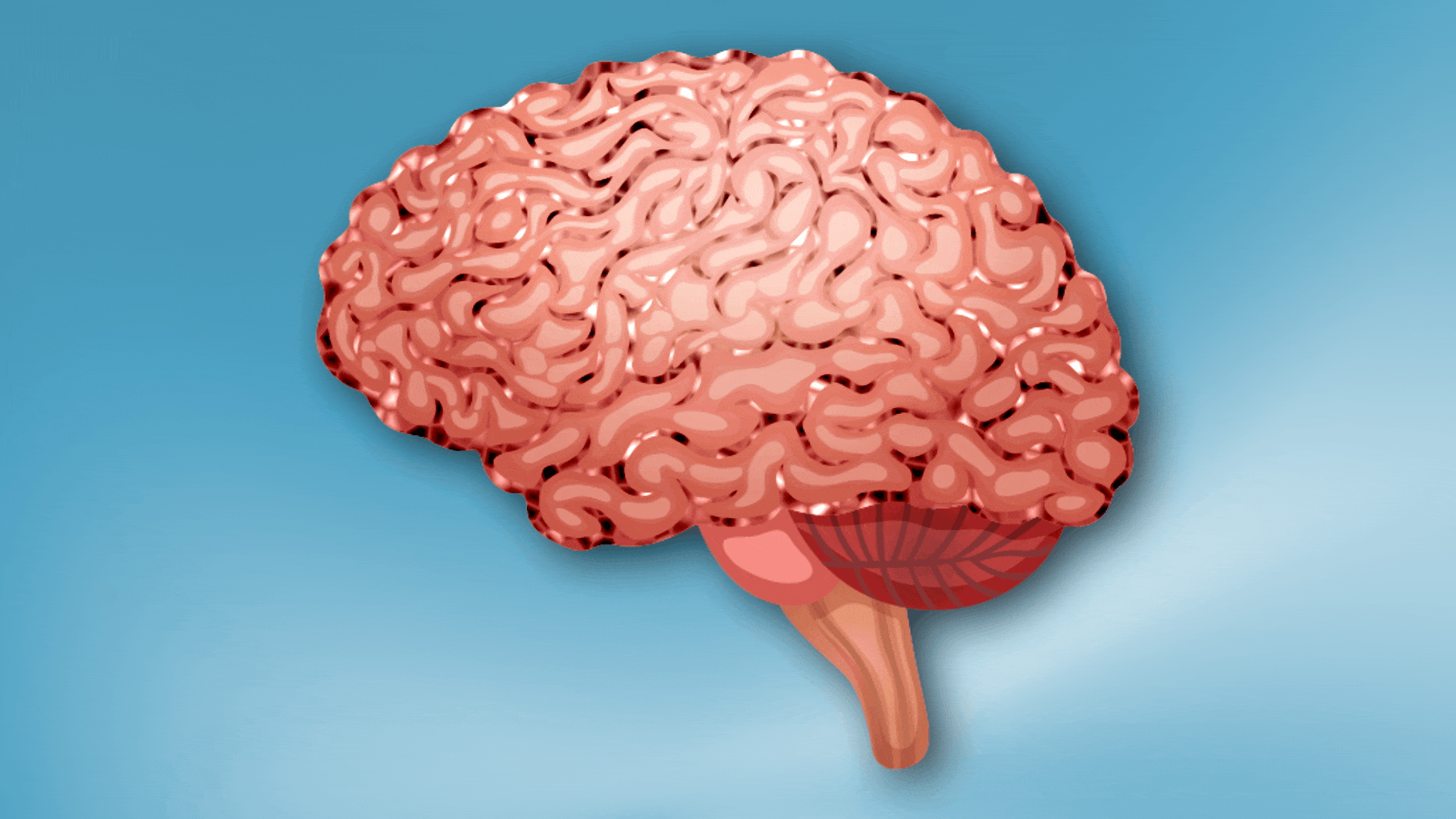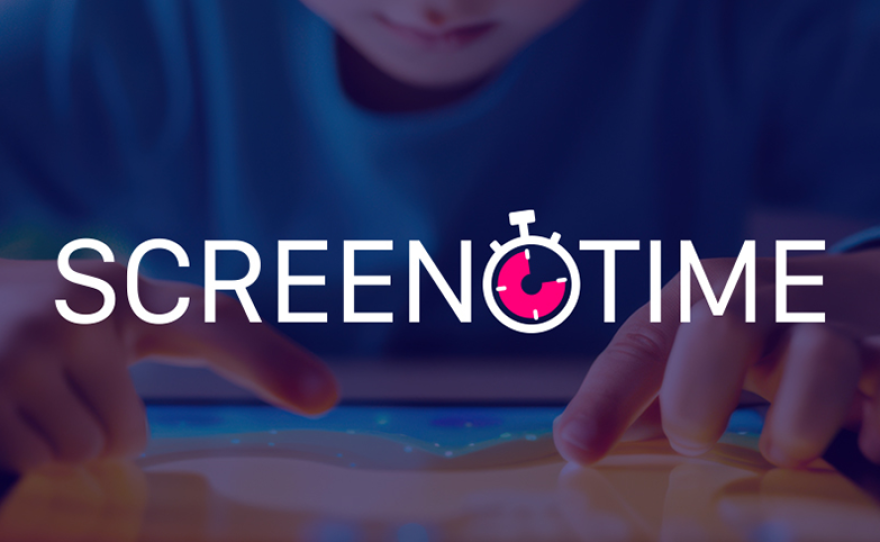One thing I often wonder when I see my kids spend time watching videos on their tablets or online gaming on their consoles is what is it doing to their young brains? Who better to talk this over with than an actual brain surgeon.
Dr. Alexander Khalessi is chair of the Department of Neurological Surgery at UC San Diego School of Medicine and neurosurgeon at UC San Diego Health. He also is the President of Congress of Neurological Surgeons.
This interview has been edited for clarity.
What should we be thinking about in terms of brain and our media use?
Khalessi: Wilder Penfield called the brain the organ of destiny. I think quite simply, it's the part of the body that makes us us. It's the seat of consciousness. It's a very complex organ that is defined by a series of networks that connect populations of neurons. It's also obviously responsible through the use of master hormones for regulating all of the key functions of our body and how we actually interact with the environment.
In childhood and adolescence, the brain is very much a moving target. It's developing rapidly in a way that subserves a lot of our other development. And like any organ that's growing and changing and developing those networks, it's quite sensitive to environmental stimuli.
And so if you think about the competing networks in the brain in very simple terms, I always tend to think of it as a dynamic tension between a positive and negative conversation. In other words, there's a signal and there's noise. And so there's things that want to reinforce and improve your performance over time. And there are those things that are distractors or negative behaviors that you actually want to be able to gain mastery of with executive function and suppress over time.
And so the extent to which children are subjected to persistent repetitive stimuli that, by definition, is going to have some impact on how their brains develop.

Can you talk about our understanding of the brain and how that's changed in recent years in terms of how it works and how that plays a role in kids and technologies?
Khalessi: I think real advances in our understanding of neuroscience really have benefited from advances in other areas. Because the brain is such a complex organ, it's really been recently that we have the material science and the computational power to decode some of these networks.
And so there's really outstanding, sophisticated imaging now that is mapping what we call the connectome. So we're actually understanding how different parts of the brain talks to one another. And actually that really supports our subjective experience. Things like mood, how we learn, understanding the biology of sleep. All of those things are actually growing quite a bit.
In addition to that, we're getting much better temper spatial resolution of signals in the brain. So if you think about the organ of the brain as a musical instrument, the electrical activity of the brain is the music. And so we're getting much better at actually hearing the music. And so it used to be that in patients with seizure disorders, you had a 64-line EEG that was a crude summation of a lot of different interaction in the brain. And we're able to deconstruct that much, much more now.
The implications for childhood development, understanding that story a little bit better, are the same. That is, if you actually are monitoring the activity in the brain and you expose people to different stimuli, you can actually understand over time how that stimuli is impacting on those networks. Networks being done in, for example, soldiers who actually have repeated and persistent concussions or athletes.
We're learning a lot about the functional networks of the brain by starting with more severe environmental exposures like blast or head injuries. But absolutely, there's a lot of interest in moving towards things like hyperactivity, screen time, and those sorts of other conditions that are top of mind for many parents raising their children.
On screen time and kids, I hear a lot about cortisol and the way that that plays a role. Can you explain what that is and is that actually a key component to understanding what's happening when, say, a child is playing a video game?
Khalessi: There's two ways that the brain fundamentally exerts an influence on our bodies. One is through direct neuronal connections in that electrical activity of the brain. The other is through control of master hormones. And so cortisol is one of the fundamental stress hormones, and it has a lot of positive functions.
When you're trying to mount any response, a fight or flight response, let's say, or when you're out practicing a sport, cortisol is your friend. It raises your blood pressure. It actually improves blood flow at your muscles. It actually allows you to ramp up and perform.
In childhood and adolescence, the brain is very much a moving target. It's developing rapidly in a way that subserves a lot of our other development. And like any organ that's growing and changing and developing those networks, it's quite sensitive to environmental stimuli.Dr. Alexander Khalessi, neurosurgeon
A persistent chronic stress response has some negative effects over time because it actually depletes your body's reserve. You can't be running a dead sprint all the time. And if you have chronic release of cortisol from your brain because your brain is fooled into believing you're in a threatening situation, that actually has some long term downside. It can lead to sleep disruption, issues with attention. It can lead to, obviously, disturbances of mood.
To the extent to which, and obviously, video games today become quite sophisticated, children are immersed in a video game world, the extent to which it's realistic and provides a more entertaining video game experience that also, quite understandably, will elicit a response. Your kid's palm will start sweating if they're in an anxious situation. If you do that hours on end, it stands to reason that's going to have an impact on your health that's a little different than if you're outside playing or participating in sports.
You talked about you can't be in that “deep sprint” all the time. I think a lot of parents have had this experience where trying to transition your child outside of a screen. In this case, my son was playing a video game and was really into it and started getting a little irritable. Then it was trying to get them off, (giving them a) five minute warning thing. But it's almost like they're really dialed in, and it's really hard to transition out of that. Can you explain just from a scientific perspective what's happening in those instances in the brain?
Khalessi: In broad terms, what you're describing is the transition from a preferred to a non-preferred activity. There's two components of that. The first is by design, if we're talking about a video game specifically, those games are designed to actually maintain engagement. If you say to your child, five more minutes, that five minutes will seem arbitrary because it will feel to the child that there's a task that's still unfinished.
It's very similar for adults when if you've ever watched these streaming services like Netflix, the reason people end up binging entire seasons is the close of an episode doesn't actually feel like there's closure. And by design, it's set up in a way to actually maintain your interest and want you to actually persist. And so it's not shocking that less mature brains have that same response to technology that's designed precisely for that purpose.
But there's a double hit there. The first hit is you're actually taking your child away from a desired environmental stimuli. But the second piece is as your child is more chronically exposed to screen time, they lose the reserve for those non-preferred tasks. And so if you think about it as a tension between the risk-reward system of their brain, the limbic system of their brain, where they're actually getting, for the lack of a term, the hit of this preferred when you withdraw that hit, and at the same time, you haven't built sufficient discipline or executive function or all those other things to then transition, let's say, to a focused task like doing homework or even sitting in a restaurant without an ongoing stimulus, that patience and discipline is something that really just needs to be developed.
It can actually only be developed by periods of uninterrupted time. If I actually said the thing that I'm personally most worried about, in terms of the impacts of these screens, it's actually less they want to continue to engage in things like games. It's more the loss of that ability to be patient, reflective, imaginative, generative in those moments where they're actually not exposed. You're getting it on both ends.
If I actually said the thing that I'm personally most worried about, in terms of the impacts of these screens, it's actually less they want to continue to engage in things like games. It's more the loss of that ability to be patient, reflective, imaginative, generative in those moments where they're actually not exposed. You're getting it on both ends.Dr. Alexander Khalessi, neurosurgeon
How does the brain work at these younger ages in terms of building that patience? I'm thinking like, Hey, I've already set these … I already, frankly, have let my kids maybe have more screen time than I would have in retrospect. But here I am, right? How could I be thinking about trying to build patience?.
Khalessi: I tend to think, not being a child psychologist or a child development specialist, I, in general terms, as someone who interfaces with the brain in a clinical way, think about child development in terms of seasons.
So you have ages zero to five, where a lot of massive brain development is taking place. And a lot of what you're trying to do there is the child to develop a sense of self and a foundation for interacting with their peers. Then, from five to 12 in that structured environment is really where you actually start to develop social norms and a response more to actually third-party authority as opposed to parental authority.
I have young children myself, and I can tell you they're more responsive sometimes to their teachers than they are to your parents because your parents are a source of familiar security. And so they actually start to learn some of those social structured norms.
Then there's this period of early adolescence, from 12 to 15, where there are these massive surges in hormones, where there's actually that gap between executive frontal function and the limbic system gets a little bit wider. And so that's a period of a lot of emotion and potential regression in that balance between executive function and in impulse control.
And then from about 15 to about 25, that's typically where you really start to see the full maturation of the frontal and temporal lobes in a way that really subverts what we consider modern adult executive function. In big building block chunks, that's generally the biology of what the substrate we're working with. Then within, obviously, each of those areas, there's lots of things you can do to put your child in a position to be successful.
Are there any potential brain benefits to some of these newer technologies? I know there's all these brain games that I've heard
Khalessi: There's a whole cottage industry, as you mentioned, around maintaining neurocognitive abilities, I would definitely say there's no question that there's actually a lot of good psychosocial data that those structured tasks are beneficial, both in terms of mood and purpose. It goes back to the original framing I offered in terms of the positive and negative conversations in your brain. So And in the same way, just to be clear, not all screen time is equivalent. If you use screens, that's why screens are sometimes being introduced into our public schools. If you use that technology in a way that allows for problem solving of the assignment of collaborative tasks, all of those things are skills that can actually build that reserve, delayed gratification that can build that reserve on the positive side that we're talking about in terms of that generative capability in the absence of stimuli. I don't want us to live in a world where you say these things clearly have a negative impact, and If we believe they can have an impact, it stands to reason it can be for either positive or negative applications. For the positive applications, though, I do think it's important to actually look at data.
If you look at a bunch of different word games, understanding the actual cognitive task you're trying to master and how that's actually furthering your cognitive profile, that's something that can be measured. You'd actually want to measure those things and use validated instruments.
Is there anything that a parent should know or keep in mind when thinking about brain health and their children?
Khalessi: As a first step, I think that it's really helpful to start with the guidelines from the American Academy of Pediatrics in terms of absolute amount of screen time at different ages. Then, as I said, I would actually try to make sure the things your children are exposed to, that they're exposed with intent. Moderating the content, you have visibility to it.
If you have them on an iPad, you're using apps that allow you to quite clearly review what they've actually seen. You don't want them to have open-ended, for example, internet connections, particularly in earlier stages in life, because there's a lot of other implications that come with that just beyond screen time. Then if you're thinking about more positive tasks, like some of the different games that we were talking about, I would actually think about, and there's lots of reviews on this topic and validated metrics around that, start to think about, Okay, what am I actually trying to achieve with this time?
I'll confess to you, and I understand it, that in an era where kids require persistent input guidance and stimuli, often, screen time is used as a de facto day care solution. And so to the extent possible in everyone's busy lives, I would resist that urge and make sure that that time is productive time for your kids. And then also, the last thing I'd say is that the brain, particularly young brains, need cognitive rest. And so if I ask you to run a marathon on a Friday and then run another marathon on a Sunday, and then I add a marathon on Saturday, that's not the same thing. The marginal impact is a lot more than just one additional marathon. And so it's really important to actually have regular intervals of breaks, particularly punctuated by outdoor activity.
The other key thing, which we haven't talked about, which is one of the most dramatic impacts of a prolonged screen time in young people is a sleep disruption. And so thinking about when you're actually exposing people to screen time, meaning your children to screen time with respect to their desired fixed set bedtime, is quite important in making sure there's some good spacing there. If you don't believe that, if you are in a situation where you're already committed, your child's already had long intervals of screen time, I'd encourage parents to just pay attention to like, Hey, when I actually let my child spend four hours on the screen within two hours of bedtime, how'd they sleep that night?
I promise you you're going to see a difference in their sleep quality.









